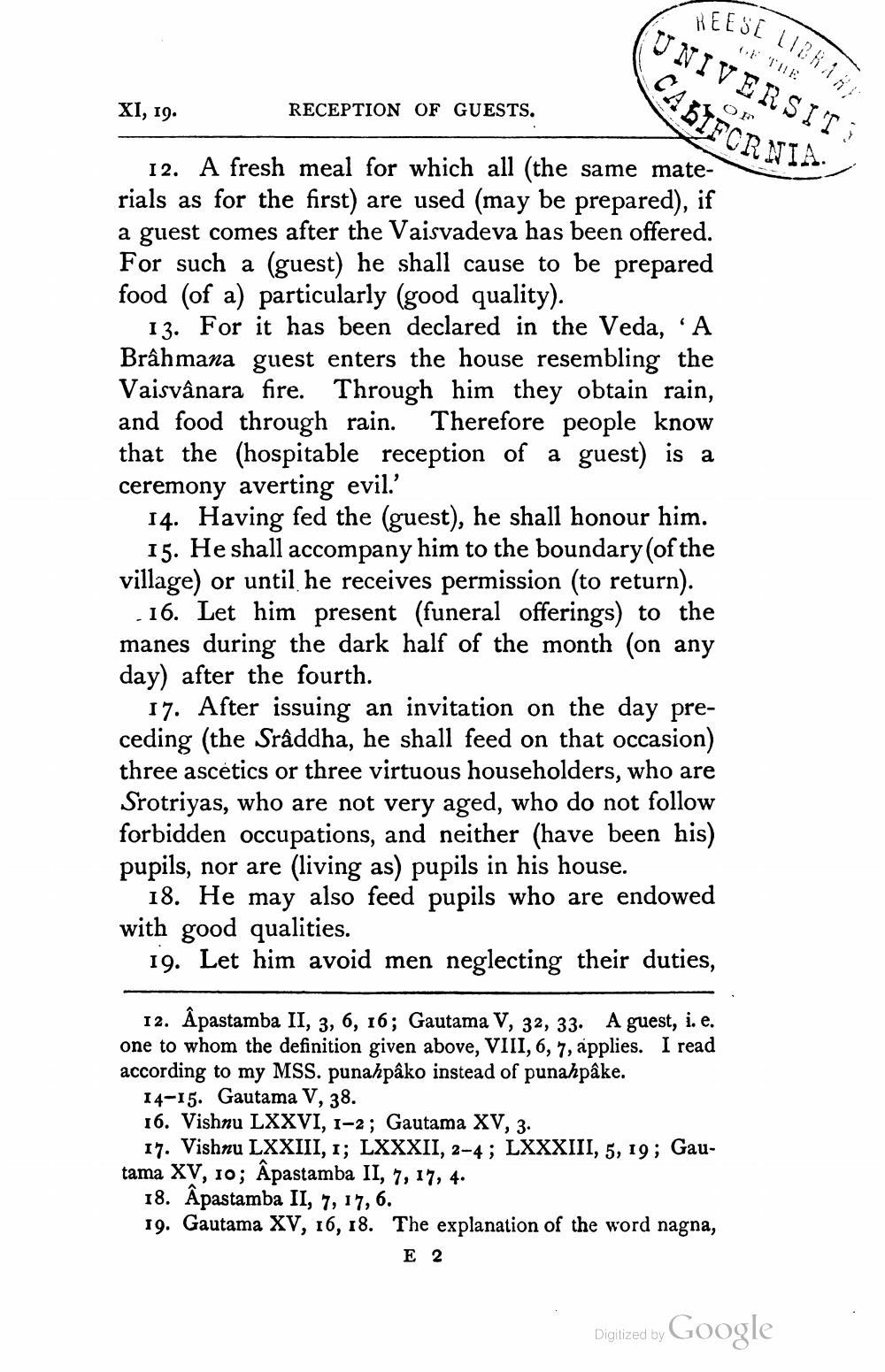________________
CESE LIBRA
THE
UNIVERSIT:
XI, 19.
RECEPTION OF GUESTS.
CAR OF DIFCRNIA
12. A fresh meal for which all (the same materials as for the first) are used (may be prepared), if a guest comes after the Vaisvadeva has been offered. For such a (guest) he shall cause to be prepared food (of a) particularly (good quality).
13. For it has been declared in the Veda, “A Brâhmana guest enters the house resembling the Vaisvânara fire. Through him they obtain rain, and food through rain. Therefore people know that the (hospitable reception of a guest) is a ceremony averting evil.'
14. Having fed the (guest), he shall honour him.
15. He shall accompany him to the boundary (of the village) or until he receives permission (to return).
.16. Let him present (funeral offerings) to the manes during the dark half of the month (on any day) after the fourth.
17. After issuing an invitation on the day preceding (the Sraddha, he shall feed on that occasion) three ascetics or three virtuous householders, who are Srotriyas, who are not very aged, who do not follow forbidden occupations, and neither (have been his) pupils, nor are living as) pupils in his house.
18. He may also feed pupils who are endowed with good qualities.
19. Let him avoid men neglecting their duties,
12. Âpastamba II, 3, 6, 16; Gautama V, 32, 33. A guest, i. e. one to whom the definition given above, VIII, 6, 7, applies. I read according to my MSS. punahpâko instead of punahpâke.
14-15. Gautama V, 38. 16. Vishnu LXXVI, 1-2; Gautama XV, 3.
17. Vishnu LXXIII, 1; LXXXII, 2-4; LXXXIII, 5, 19; Gautama XV, 10; Âpastamba II, 7, 17, 4.
18. Apastamba II, 7, 17,6. 19. Gautama XV, 16, 18. The explanation of the word nagna,
E 2
Digitized by
Digitized by Google




